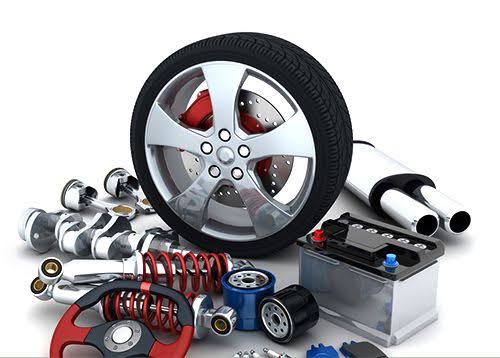Add your promotional text...
The Evolution of Traditional Industries: How Bharat Forge and Castrol India Are Thriving in the EV Era
Synopsis: As industries face rapid technological advancements and environmental challenges, traditional companies must evolve or risk becoming obsolete. This blog explores how Bharat Forge and Castrol India are successfully pivoting their business models to thrive in the electric vehicle (EV) era and beyond. By diversifying into defense and data center cooling solutions, respectively, these companies are setting a blueprint for how traditional industries can adapt to the changing landscape and ensure long-term success.
ANALYSIS AND OPINION
By Vikash Purohit
8/14/20243 min read


In an era where technological advancements and environmental concerns are rapidly transforming industries, traditional companies must either evolve or face obsolescence. This blog explores how two major players in India—Bharat Forge and Castrol India—are pivoting their business models to not only survive but thrive in the emerging electric vehicle (EV) era and beyond.
The Disruption of Traditional Business Models
Industries are no strangers to disruption, but the pace and scope of changes today are unprecedented. The rise of electric vehicles is a perfect example, forcing traditional automotive suppliers to rethink their strategies. A typical internal combustion engine (ICE) drivetrain has around 2,000 moving parts, while an electric vehicle has just 20. This dramatic reduction in complexity means that many companies in the auto ancillary sector must either innovate or diversify to stay relevant.
This challenge isn’t just theoretical; it’s a reality faced by companies across the globe. Take Kodak, for instance, a once-dominant player in photography that failed to adapt to the digital revolution and eventually became a cautionary tale of technological obsolescence. However, Bharat Forge and Castrol India are determined not to follow this path.
Bharat Forge: A Strategic Pivot Towards Defense
Bharat Forge, a leader in the auto ancillary sector, recognized early on the need to diversify beyond the traditional automotive market. Starting in 2010, the company invested over ₹7 billion in designing weapons, armoured vehicles, and ammunition. Despite the initial lack of orders and revenue, Bharat Forge’s persistence paid off as the Indian government began emphasizing indigenizing defense production.
The government's shift in procurement policies, which encouraged private sector participation, provided Bharat Forge with the opportunity it needed. Over the years, the company invested heavily in designing and developing cutting-edge defense products, positioning itself as a key player in the defense sector.
Today, while the defense vertical accounts for less than 10% of Bharat Forge’s total revenue, the company expects this figure to grow sevenfold by 2030. This strategic pivot has not only diversified Bharat Forge’s revenue streams but also positioned it as a significant player in a growing industry, far removed from the uncertainties of the EV transition.
Castrol India: From Lubricants to Data Centers
Castrol India, a name synonymous with automotive lubricants, has long been a cornerstone of the global ICE industry. However, the rise of electric vehicles poses a significant threat to its core business. Recognizing this, Castrol India is making a strategic shift to avoid the fate that befell companies like Kodak.
The company is now focusing on data centers as a new growth avenue, specifically targeting thermal management solutions. As data centers become more critical in the digital age, managing the heat generated by dense and powerful hardware is a growing challenge. Castrol India is leveraging its expertise in fluid technology to develop innovative cooling solutions, including liquid cooling, which is increasingly seen as a more effective method than traditional air cooling.
The global demand for data centers is surging, driven by the expansion of cloud services, artificial intelligence, and big data. With India’s data center capacity expected to double by 2026, and significant investments from global giants like Amazon, Walmart, and Google, the country is poised to become a major data center hub. Castrol India’s strategic pivot into this sector is not just a defensive move; it’s a proactive strategy to tap into a rapidly growing market.
The Future of Traditional Industries
The stories of Bharat Forge and Castrol India demonstrate that traditional industries can not only survive but also thrive by embracing change and diversifying their business models. As the world shifts towards more sustainable and technologically advanced solutions, companies that adapt and innovate will be the ones to lead the future.
These examples should serve as a reminder that not every company in the traditional ICE automobile ecosystem is destined to become the next Kodak. With the right strategy and willingness to pivot, companies can turn potential threats into significant opportunities, ensuring long-term success in an ever-evolving market.
In conclusion, The rise of electric vehicles and the increasing importance of data centers are just two examples of how industries are being reshaped by technology and environmental concerns. Bharat Forge and Castrol India have shown that by recognizing these trends early and adapting accordingly, traditional companies can secure their future and continue to grow. In a world where the only constant is change, the ability to pivot and innovate is the key to survival and success.
